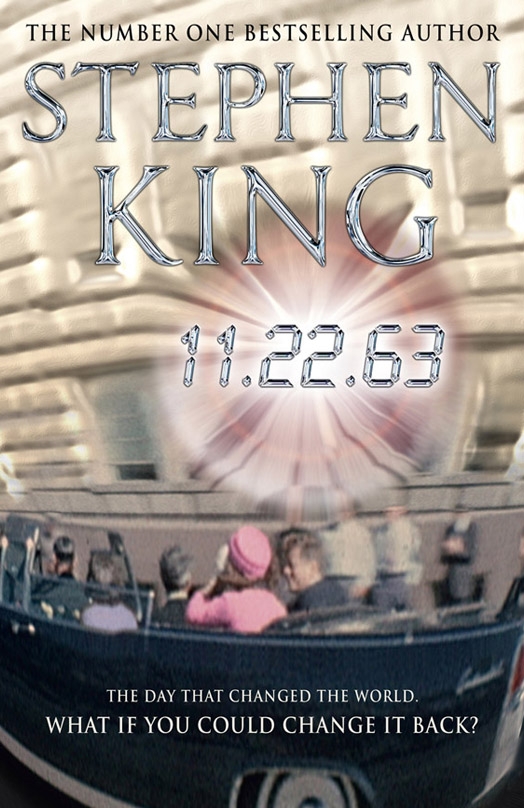 If you could go back in time, would you? If you could change history, fixing what appears to be an incredible wrong, would you?
If you could go back in time, would you? If you could change history, fixing what appears to be an incredible wrong, would you?
More to the point, should you?
English teacher Jake Epping, from the little town of Lisbon Falls, is – like so many of King’s main characters – a decent but complicated bloke. A troubled past with an alcoholic ex-wife, makes him the perfectly imperfect lead bloke for a Stephen King novel.
Jake discovers a secret that allows him to time travel back to 1958 and offers him the opportunity to change the course of history by trying to prevent the assassination of JFK, while showing us an insight into the life of a troubled loner by the name of Lee Harvey Oswald.
It is no secret that I’m a fan of Stephen King. I read my first King novel way back in the mists of time when I was 11 (Carrie, if you were wondering) and have enjoyed most of my King encounters since.
I say most because there was the occasional hiccup along the way: Needful Things was predictable, offering me no surprises, and it is the surprises that are my second-favourite thing about his novels. My No 1 favourite thing about Stephen King novels is his uncanny knack for getting inside my head, where he manages to scare the living you-know-what out of me.
11.22.63 is not a truly scary novel, though. It is not a horror, even though at times there are some elements of horror. It is more a time-travel romance with a history lesson and conspiracy theory or two chucked in for good measure.
Some reviewers have been critical of the length of this novel, (a whopping 700-plus pages) but the book held my attention well enough for me to overlook its size.
Although, being such a weighty tome, it was difficult to read in bed – and/or with a glass of wine in one hand.
However, those minor hardships were worthwhile for such an intriguing story.
This is one of those epic King reads that paints a picture so vivid you will feel like you are there.
The book is a long story that builds slowly but effortlessly. At times there was a feel of some of his earlier epics, (It, for example) but I suppose that is to be expected from such a prolific author: this is book No50-something in his bibliography.
I enjoyed every one of the 740 pages and the complex moral dilemmas and messages contained within.
Oh, and it is worth mentioning that, even though I could tell what would be happening at the end of predictable Needful Things by the end of the first chapter, I still read every golden word of the book. This is because Stephen King is quite simply awesomeness personified when it comes to compelling writing and I am unable to tear myself away from his words.
